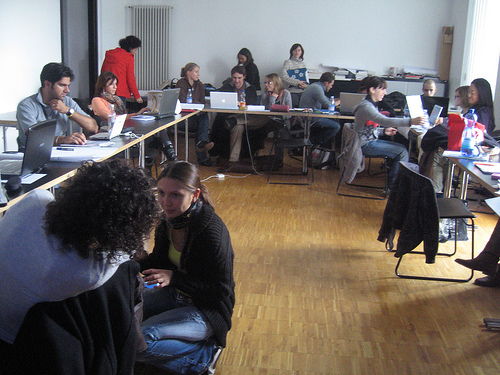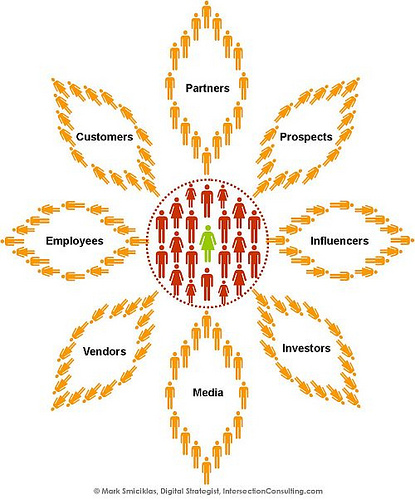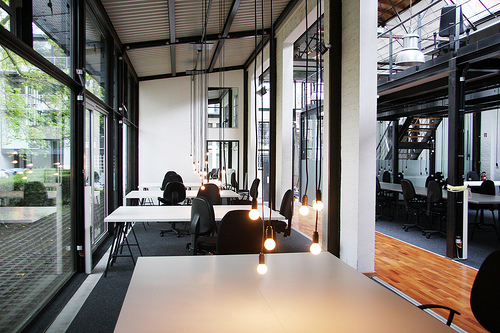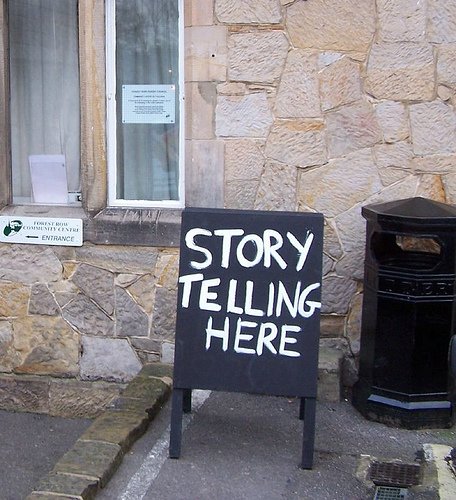Post Author: Kevin Skiena.
Imagine what would happen if McDonalds and Burger King shared recipes and business models, or if Comcast and Verizon viewed each other as allies in their efforts to bring cable and high-speed internet to everyone. In a capitalistic society, where competition is branded as the best way to keep prices low and the customer happy, openness and collaboration can work against your business interests. Why give away your advantages?
Enter coworking. The values of coworking are openness, collaboration, accessibility, sustainability, and community. These qualities may seem to fly in the face of capitalism. Why should we share? How can my business thrive if someone else is diluting my presence in the marketplace by offering the same services?
We can easily forget that two companies marketing the same service are, in a sense, marketing for each other. What our community has to offer – the exact reason why collaboration suits us better than competing – is the individuality and uniqueness of the communities we create. Space owners and operators recognize that chief among their goals is to foster feelings of support and camaraderie. They may do this using particular techniques or activities, but even if another owner adopts the same practices, it would be impossible to produce the same results. Coworking works as a business model because of our intense desire to feel part of a community, and no matter how much of our techniques we share, every community will be different. Jacob Sayles, Coworking Wiki Upgrade Project Director and Co-founder of Office Nomads, thinks of new coworking space owners in his area as business partners. “When I hear that a new coworking space is opening in Seattle, I want to meet the people opening it,” he says. “I want to buy them drinks.”
A Platform for Growth and Collaboration
The Coworking Wiki was formed as a way to grow the movement and share our values. It’s a free, community-owned and operated web tool meant to help anyone looking to start, find, and run a coworking space. It offers shared business plans and advice. It has links to well-researched press about the movement. It showcases collaborative efforts between spaces, like the Coworking Visa program, which allows a freelancer or small business entrepreneur the use of an office while traveling in another city. The wiki allows us to aggregate and organize all of these resources in one place while reviewing its content and ensuring its neutrality. Today it is one of the top 3 web search results for “coworking” (behind Wikipedia and coworking.com). It’s highly visible, averaging about 500 hits a day, and it’s often one of the first places people new to coworking will go to learn about the movement. But there’s a problem . . .
Until now, the wiki’s content has been moderated by a small group of dedicated volunteers. The movement has grown exponentially, and the demands of keeping the wiki organized and up-to-date have simply become too much for the same level of commitment. Many links on the wiki are broken or misleading. Section heads are missing content, and contact information is outdated. Many wiki visitors feel overwhelmed or lost. It doesn’t have to be this way.
The Upgrade Project
The wiki has amazing potential to help new space catalysts, owners, and bring new people to the movement, and we want to help it live up to that promise. A small team of Seattle-based coordinators are working on a plan to improve the wiki’s content while creating a framework to keep it organized and maintained long into the future. We’ve identified the wiki’s key stakeholders, and we want to restructure the site using the concerns of these groups as a guide. We are working for discounted rates and volunteering our time in order to make this happen, but we can’t do it alone.
How You Can Help
Volunteer
Are you great an organizing and consolidating information? Maybe you’re more of a people-person. Our volunteer coordinator, Sarah Cox of Cospace, is assembling a list of is coordinating wiki volunteers and would love to hear from you if you have some time to chip in.
Join the Team
Going forward, the wiki will be moderated and organized by small team of coworking space employees. Their work on the project will become part of their regular job functions (no overtime necessary), and we expect wiki obligations to occupy no longer than 5 hours/week. We are looking for at least 3 more team members willing to make a one-year commitment. If you are an employee of a coworking space, or run a coworking space and are willing to dedicate up to 5 hours/week of your paid time to the project, we’d love to talk to you about joining the effort.
Donate
Your contributions allow for the recruitment and training of new team members, community outreach efforts, and the development of a map-based, searchable Coworking Directory. Our passionate team is fully committed to seeing this through, and they can’t do it without your financial support. Please think about how you could benefit from the shared resources of an upgraded Coworking Wiki and, if you’re able, consider making a contribution.
Spread the Word, and Give Us Feedback
First and foremost in our minds is that this is a community project. Please subscribe to our blog or follow us on twitter. Track our progress, share this information with other community members, and don’t hesitate to let us know what you think.




 Coworking for Android – by
Coworking for Android – by 





